Video playlists
- Video Number2 Videos

- Video Number1 Video

- Video Number1 Video
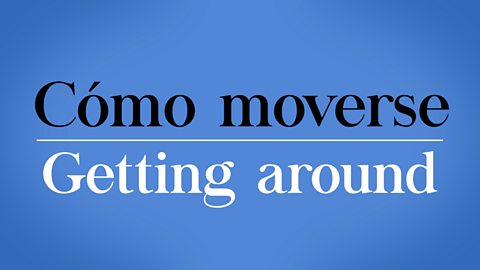
- Video Number3 Videos
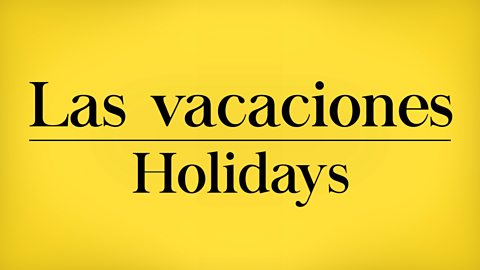
- Video Number2 Videos
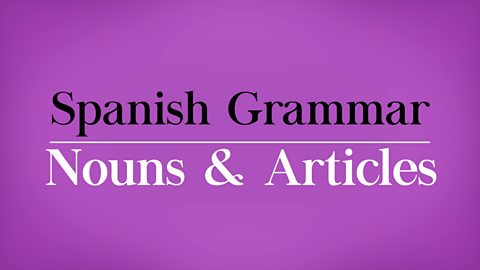
- Video Number2 Videos
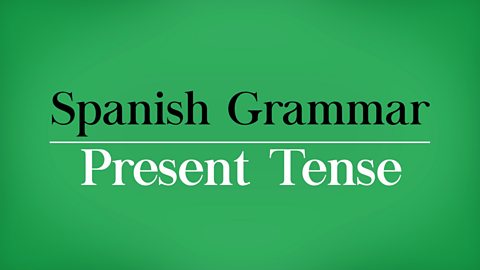
- Video Number4 Videos

Who am I?
Me, my family and friends in Spanish - Edexcel
Introduce yourself, your friends and family and learn vocabulary to describe and respond to questions about those close to you.

Socialising, interests and role models in Spanish - Edexcel
Talk about what you like to do in your free time and practise key vocabulary for discussing interests and role models.

Daily life
Social media and technology in Spanish - Edexcel
Learn key phrases and vocabulary to help you discuss different types of technology, their uses, advantages and disadvantages, and the impact of social media.

My home and everyday life in Spanish - Edexcel
Practise your listening and reading skills and revise key phrases and vocabulary used to discuss different aspects of home life.

Food and eating out in Spanish - Edexcel
Food plays an important part in Spanish culture. Revise vocabulary to talk about foods, discuss restaurants and cooking, and order meals.

Shopping and advertising in Spanish - Edexcel
Whether it’s for clothes, food or anything else, shopping plays an important part in everyday life. Practise using language to discuss shopping, speak with shop assistants and understand advertising.
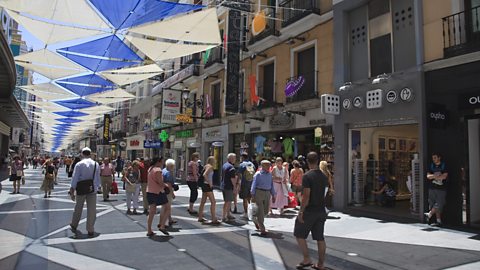
Cultural life
Music, cinema, TV and reading in Spanish - Edexcel
Learn key phrases and vocabulary about different forms of entertainment. Practise your language skills to help you understand and give opinions about TV, film, music and reading.

Sports and exercise in Spanish - Edexcel
Sport is a key free time activity for many people, whether they’re playing or watching. Learn key phrases and vocabulary to help you discuss sports and exercise.

Spanish customs, celebrations and festivals - Edexcel
The different festivals and customs of Spanish-speaking countries are well-known throughout the world. Revise key vocabulary used to discuss traditional celebrations and parties, as well as music festivals.
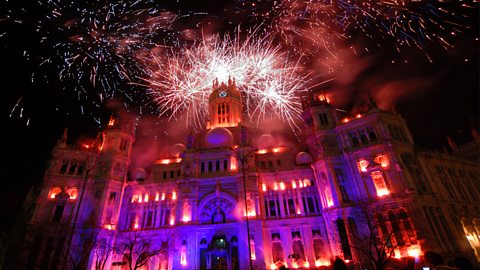
Holidays, travel and tourism
Holidays and tourism in Spanish - Edexcel
Holidays and tourism is a broad topic. It is important to know the basic vocabulary, to understand written and spoken information and to be able to talk and write about your own holiday experiences.

Travel, journeys and transport in Spanish - Edexcel
Learn key phrases and vocabulary connected with travel to enable you to understand spoken and written texts on the topic and use the spoken language in everyday practical situations.

Town, region and country
My local area in Spanish - Edexcel
Practise your language skills and learn how to give directions, describe the weather and talk about different places in towns or neighbourhoods.

School
Experiences of school and college in Spanish - Edexcel
It is important to be able to understand spoken and written texts on the topic of school and college and to be able to talk about your own experiences of what school is like.

School and college activities in Spanish - Edexcel
It is important to be able to understand spoken and written texts on the topic of school and college activities and to be able to talk about your own experiences.
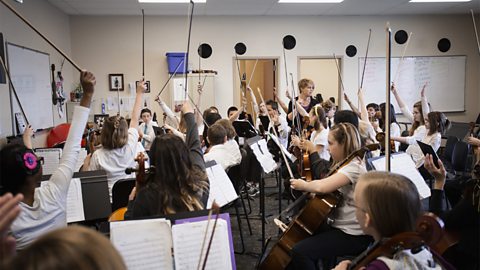
Future aspirations, work and study
Future ambitions and plans in Spanish - Edexcel
Discuss your future plans for family, further education or travel, and understand reading and listening texts on the topic of ambitions.

Work experience and jobs in Spanish - Edexcel
Learn vocabulary about careers and professions with the help of example job applications, reading exercises and listening practice.

International and global dimension
The environment in Spanish - Edexcel
It is important to be able to understand written and spoken passages about environmental issues and to be able to talk and write about environmental problems and what you and others do to help, for example by recycling or volunteering.

Global issues and events in Spanish - Edexcel
Sports tournaments, music festivals, and charity campaigns are examples of global issues and events. Develop your understanding of these themes and practise translation, reading and listening skills.
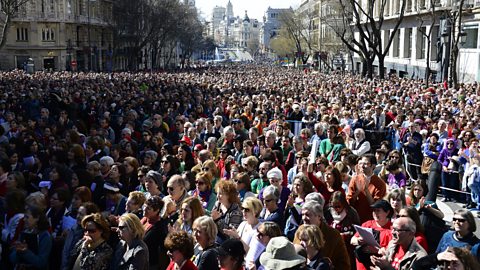
Grammar
Revising Spanish grammar - nouns and articles - Edexcel
A noun is a naming word used for a person, thing, place or idea. In Spanish, all nouns are either masculine or feminine. The word for 'the' or 'a' changes depending on the gender of the noun and whether it is singular or plural.
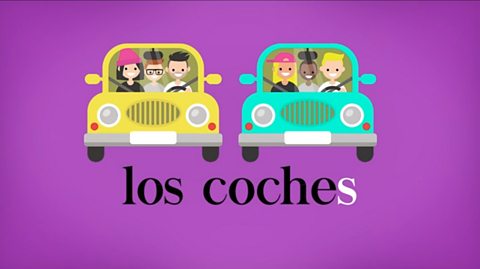
Revising Spanish grammar - adjectives - Edexcel
An adjective is a word that describes a noun. In Spanish, adjectives have different endings depending on whether the word they are describing is masculine, feminine, singular or plural.

Revising Spanish grammar - adverbs - Edexcel
Adverbs are words that add meaning to the verb and describe actions. They tell us when or how something is happening or where the action in a sentence takes place.

Revising Spanish grammar - pronouns - Edexcel
Pronouns are used to replace nouns. Pronouns are usually shorter and quicker ways of referring to a noun to help make sentences less repetitive.

Revising Spanish grammar - present tense - Edexcel
Use the present tense to describe what you do and what things are like. The present continuous can be used to talk about what is happening now.

Revising Spanish grammar - the preterite tense - Edexcel
Use the preterite tense to talk about completed actions at specific times in the past. The preterite is used when the past action has a definite beginning and definite end.

Revising Spanish grammar - the imperfect tense - Edexcel
Use the imperfect tense to talk about repeated or continuous actions in the past. The imperfect is used when the past action doesn’t have a definite beginning and definite end.

Revising Spanish grammar - the perfect tense - Edexcel
The perfect tense is used to express or describe actions that have happened in the recent past. It has two parts that always need to be used together.
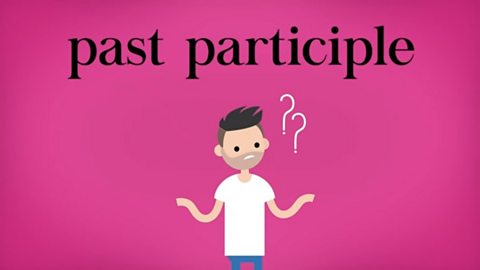
Revising Spanish grammar - future tense - Edexcel
Use the immediate future tense to talk about what is going to happen. The future tense is used to express what will take place.

Revising Spanish grammar - the conditional tense - Edexcel
Use the conditional tense to talk about intentions and ambitions that may happen in the future. The conditional is used for polite requests and to express phrases using 'would', 'could' and 'should'.

Revising Spanish grammar - other tenses and verb forms - Edexcel
Add variety to your written and spoken Spanish by using other tenses and verb forms. Develop your language skills and improve comprehension by recognising and practising a range of structures.

Revising Spanish grammar - negatives - Edexcel
Negative words can be used in different ways in Spanish. Construct negative sentences by using 'no' and other negative words and phrases.

Links
- External linkExternal link
- External linkExternal link
- SubscriptionSubscription
- External linkExternal link
- External linkExternal link